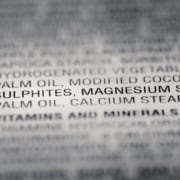New Study: Splenda Linked to Cancer
Whether or not sugar can have a substitute has been an often-debated topic. Consumers to reduce chances of sugar related diseases turned towards alternative sweeteners. One such product that was popularized as an alternative is Splenda. Splenda contains sucralose, a sweetener deemed harmless up until now.
The Problem with Sucralose
The Ramazinni Institute in Italy published a new study that revealed the dangers of sucralose. The risks include cancer and leukemia. Findings of the study do not align with the claims made by Splenda and their testing methods. Earlier studies on sucralose intake resulted in the conclusion that it remains “biologically inert”. Splenda products were marketed with a heavy emphasis on rigorous testing. Consumers perceived the product to be much healthier than sugar, which helped raise Splenda’s sales to $177 million.
Here are the findings put forward by Ramazinni Institute in the International Journal of Occupational and Environmental Health:
The test subjects included 457 male mice and 396 female mice. The subjects were administered with sucralose of varying dosages added to their food from 12 days of growth till they died. Sucralose dosage resulted in a raised level of cancer in the male rodents since the amount of Splenda in their diets was higher as compared to those of the female rodents. Also, researchers found the occurrence of leukemia among the male mice who were given a dosage level of 2,000 to 16,000 ppm.
Splenda is Still a Sweetener
These revelations demand a further explanation on whether Splenda, even in small quantities can pose health risks. Additionally, the two human trials that got published and approved by the FDA lasted only four days and only tested Splenda regarding tooth decay. However, Splenda’s spokespersons claim that the research and its results are unreliable. The company is focusing on the data produced over a period of two decades which includes 100 research studies and experiments stating that “Extensive research strongly supports that sucralose is safe for everyone and does not cause cancer.”
Sucralose is an artificial ingredient. The major concern is whether the body can completely metabolize the ingredient. The Center for Science in the Public Interest strongly advises against the consumption of other artificial sweeteners like aspartame, saccharin, and acesulfame potassium. Sucralose is a lot sweeter than aspartame and has found its way into several food and beverages.
Inspired by techtimes.com




